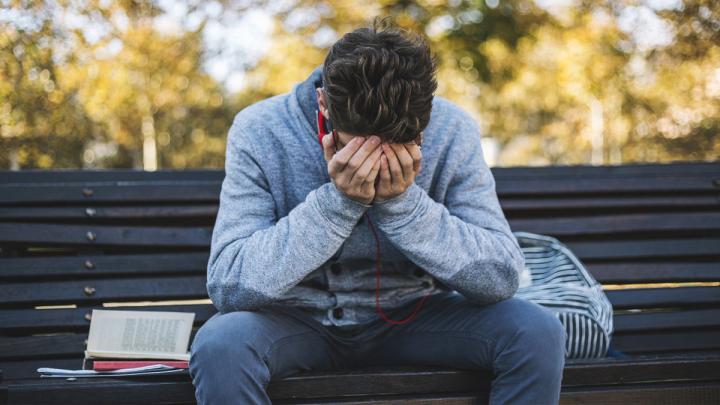School counseling expert offers tips for supporting student mental health concerns

A month into a full return to in-person learning, K-12 schools across the country are struggling with behavioral and mental health issues among returning students. Many educators are seeing an uptick of disruptive behavior, violence and fights taking place with the start of the new school year.
These behavioral and mental health issues, school counseling expert Bonnie Rubenstein, EdD, professor and chair of counseling and human development at the University of Rochester’s Warner School of Education says, are a result of the stress and losses placed on children during the coronavirus pandemic. Many families have struggled with chaos, loss of normalcy, loss of peer interaction, loss of jobs and consequently financial challenges, illness and death. But it’s not an end-all—educators can help students cope with these challenges as they transition back to school.
“Mental health professionals have discussed the impact that the lack of in-person instruction has had on the social-emotional development and well-being of children and adolescents the past 18 months,” says Rubenstein. “Indeed, decades of research indicates that addressing social-emotional learning has a positive impact on the academic achievement of students.”
School leaders, counselors and teachers have expressed ongoing concerns with the mental health of students, according to Rubenstein. As school districts improved ventilation systems and implemented safety procedures, issues of multiple losses remain—fear of becoming ill, loss of student celebrations, loss of agency or control by students in decisions impacting their lives and a general feeling of loneliness.
“Above all, students need to feel safe, supported and heard,” adds Rubenstein. “Adults can foster feelings of safety and security by interacting and nurturing positive relationships with their students. It’s also important to remain flexible as things are constantly changing daily with the pandemic.”
Rubenstein offers the additional following tips for educators to support students as they strive to adapt to a full return to in-person learning throughout the course of the school year:
Establish a routine.
Daily routines and structure are important to help students feel safe and secure. Knowing what to expect is comforting.
Create a safe space.
Stress safety—students cannot learn if they do not feel safe. A safe and supportive school environment is a must for students and educators alike.
Focus on well-being
Use different skills to ensure students’ emotional well-being. Similarly, focus on the mental health and well-being of the adults who work with children. For school leaders, implement wellness training for staff and support and encourage everyone—the teachers, counselors, social workers and administrators. Addressing the mental health of school personnel will directly impact students. Examples include mindfulness activities, breathing exercises, meditation and relaxation exercises, self-regulation activities and physical activity.
Provide opportunities for healing and repair.
Implement a school-wide approach of trauma-informed learning. This approach helps teachers to better understand the developmental, emotional and social challenges that students face. For example, teachers can focus on restorative practices and relationship building through peace circles, peer support groups, peer mediation and group counseling.
Encourage student voice and agency.
Provide opportunities for students to have agency and voice. Student voice into what is happening will go a long way in improving school culture and climate.
Model good coping behaviors—be honest, encouraging and calm.
It is important to be encouraging and honest and to demonstrate a positive attitude with students. Stay calm—children and adolescents pick up on the underlying fear of adults.
Listen to children’s concerns.
Above all, be a good listener. Students need to be able to share their feelings. Be fully present when students are expressing their fears and issues of grief and loss. Be aware of symptoms of anxiety and depression. Provide targeted interventions for students experiencing symptoms
Increase family support.
Increase supports to families—which, in turn, will impact the health and well-being of students. Implement family-school-community collaborations and partnerships to support engagement and student success.
Rubenstein, who received a doctorate in counseling and human development from the University of Rochester, previously served as director of counseling for the Rochester City School District (RCSD) for more than two decades. At RCSD, she implemented college- and career-readiness programs and comprehensive school counseling programs for 34,000 students district-wide and supervised 91 school counselors. She currently focuses her research on the impact of grief and loss on students and families, the impact of divorce on teenagers’ home lives and school skill development, and college and career readiness. She has published several articles in all of these areas and developed teacher/counselor resource materials, including manuals, videos, and software.